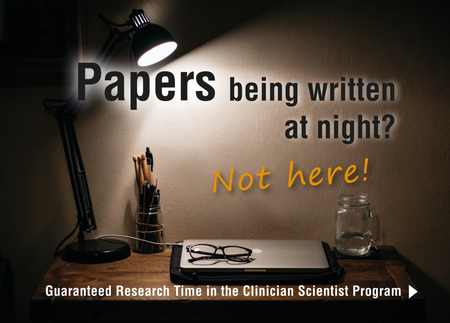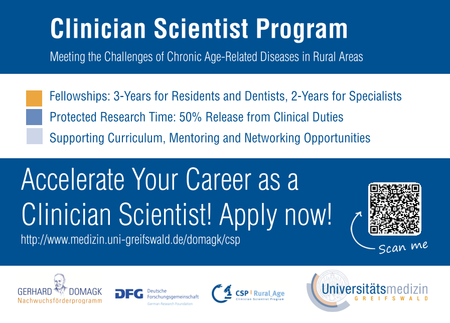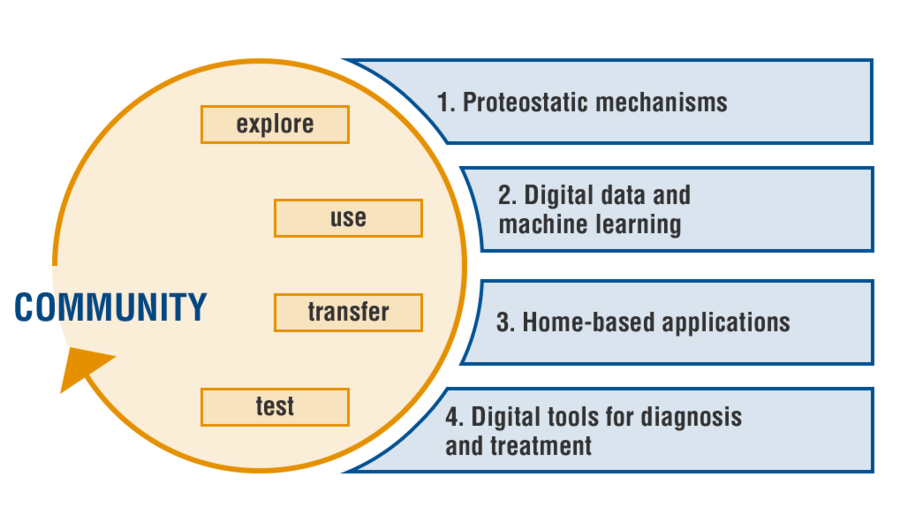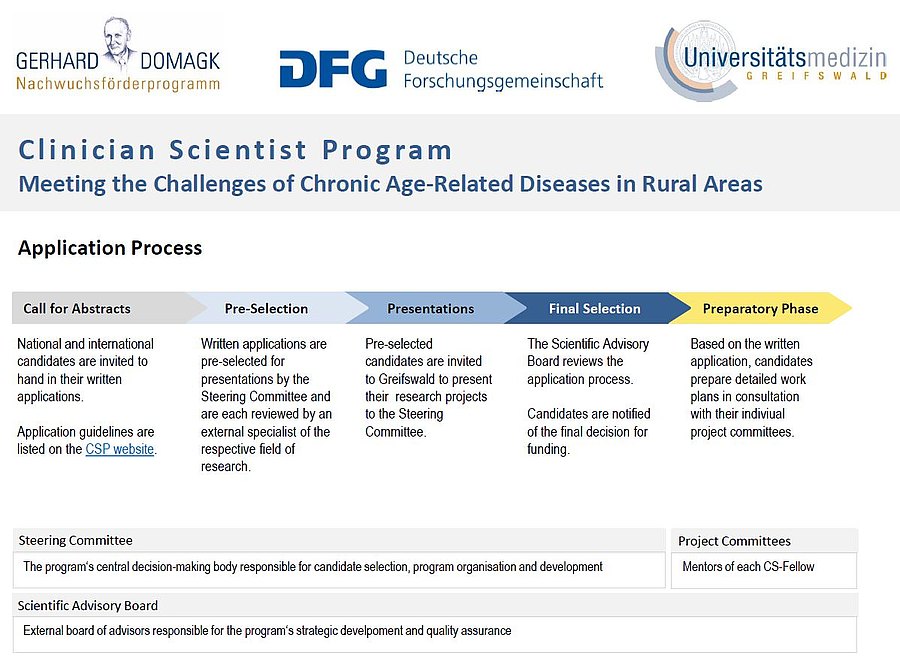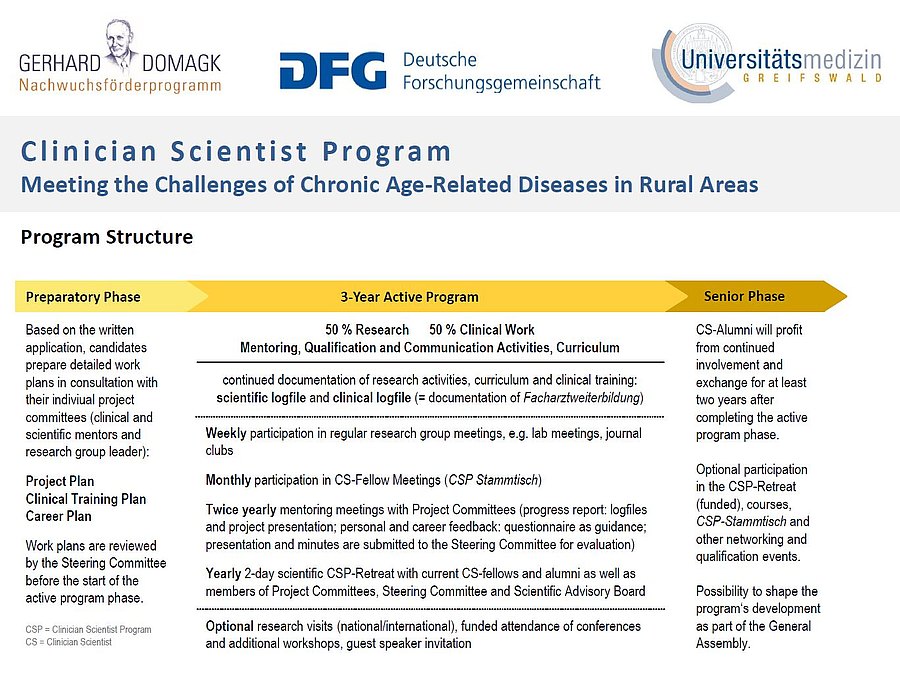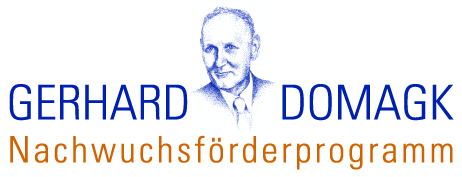In the Clinician Scientist Program (CSP) Rural_Age, clinician scientists can focus on highly relevant research questions with a 50% reduction in clinical responsibilities. This program seamlessly integrates specialist clinical training with scientific endeavors. A structured curriculum, professional development opportunities, networking, and personalized mentoring create the foundation for fellows' personal and professional growth. The program aims to foster specialist certification and facilitate Habilitation or equivalent achievements.
Our program offers two distinct tracks:
3-Year Program Eligibility:
- Open to clinically active resident doctors. A minimum of 2 years of specialist training (Facharztausbildung) is recommended.
- Also open to dentists with a doctorate, up to four years post-completion of the state examination.
2-Year Program Eligibility:
- Designed for clinically active specialist doctors, with eligibility extending up to 2 years following specialization.
All applicants must demonstrate a clear scientific interest, which can be evidenced through publications or other scientific contributions. For specialist doctors, higher achievements are expected, including at least two first/last authorships in original publications, aligning with their advanced career stage.
It's important to note that the German licence to practise medicine (Approbationsurkunde) is mandatory for program commencement, which occurs annually on the 1st of April.
Our 3-Year Program is funded by the DFG and the Gerhard Domagk Nachwuchsförderprogramm our 2-Year Program is funded by the Gerhard Domagk Nachwuchsförderprogramm.
